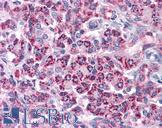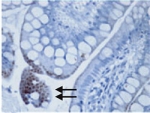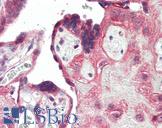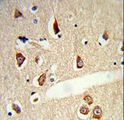Login
Registration enables users to use special features of this website, such as past
order histories, retained contact details for faster checkout, review submissions, and special promotions.
order histories, retained contact details for faster checkout, review submissions, and special promotions.
Forgot password?
Registration enables users to use special features of this website, such as past
order histories, retained contact details for faster checkout, review submissions, and special promotions.
order histories, retained contact details for faster checkout, review submissions, and special promotions.
Quick Order
Products
Antibodies
ELISA and Assay Kits
Research Areas
Infectious Disease
Resources
Purchasing
Reference Material
Contact Us
Locations
Orders Processing,
Shipping & Receiving,
Warehouse
2 Shaker Rd Suites
B001/B101
Shirley, MA 01464
Production Lab
Floor 6, Suite 620
20700 44th Avenue W
Lynnwood, WA 98036
Telephone Numbers
Tel: +1 (206) 374-1102
Fax: +1 (206) 577-4565
Contact Us
Additional Contact Details
Login
Registration enables users to use special features of this website, such as past
order histories, retained contact details for faster checkout, review submissions, and special promotions.
order histories, retained contact details for faster checkout, review submissions, and special promotions.
Forgot password?
Registration enables users to use special features of this website, such as past
order histories, retained contact details for faster checkout, review submissions, and special promotions.
order histories, retained contact details for faster checkout, review submissions, and special promotions.
Quick Order
| Catalog Number | Size | Price |
|---|---|---|
| LS-C90550-200 | 200 µl | $734 |
Polyclonal Rabbit anti‑Human TLR3 Antibody (Biotin, N‑Terminus, WB) LS‑C90550
Polyclonal Rabbit anti‑Human TLR3 Antibody (Biotin, N‑Terminus, WB) LS‑C90550
Antibody:
TLR3 Rabbit anti-Human Polyclonal (N-Terminus) (Biotin) Antibody
Application:
WB, Flo
Format:
Biotin, Unmodified
Other formats:
Toll Free North America
 206-374-1102
206-374-1102
For Research Use Only
Overview
Antibody:
TLR3 Rabbit anti-Human Polyclonal (N-Terminus) (Biotin) Antibody
Application:
WB, Flo
Format:
Biotin, Unmodified
Other formats:
Specifications
Description
TLR3 antibody LS-C90550 is a biotin-conjugated rabbit polyclonal antibody to TLR3 (N-Terminus) from human. Validated for Flow and WB.
Target
Human TLR3
Synonyms
TLR3 | CD283 | Toll-like receptor 3 | CD283 antigen | IIAE2
Host
Rabbit
Clonality
IgG1
Polyclonal
Conjugations
Biotin
Purification
Purified
Modifications
Unmodified.
Also available Azide-free.
Immunogen
KLH conjugated synthetic peptide selected from the N-Terminus of mouse TLR3.
Epitope
N-Terminus
Applications
- Western blot
- Flow Cytometry
Usage
The applications listed have been tested for the unconjugated form of this product. Other forms have not been tested. WB: Predicted molecular weight 100kD
Presentation
PBS, 0.1% BSA
Storage
Short term: 4°C; Long term: Add glycerol (40-50%) -20°C.
Restrictions
For research use only. Intended for use by laboratory professionals.
About TLR3
Publications (0)
Customer Reviews (0)
Featured Products
Species:
Human
Applications:
IHC, IHC - Paraffin, ICC, Immunofluorescence, Western blot
Species:
Human, Monkey, Goat, Sheep
Applications:
IHC, IHC - Paraffin, Western blot, Immunoprecipitation, Flow Cytometry
Species:
Human, Mouse, Dog
Applications:
IHC, IHC - Paraffin, IHC - Frozen, Immunofluorescence, Western blot, Immunoprecipitation, Flow Cytometry, Functional Assay
Species:
Mouse
Applications:
IHC, IHC - Frozen, Western blot, Flow Cytometry
Species:
Human, Mouse
Applications:
IHC, IHC - Paraffin, ICC, Immunofluorescence, Western blot, ELISA
Request SDS/MSDS
To request an SDS/MSDS form for this product, please contact our Technical Support department at:
Technical.Support@LSBio.com
Requested From: United States
Date Requested: 4/25/2024
Date Requested: 4/25/2024














